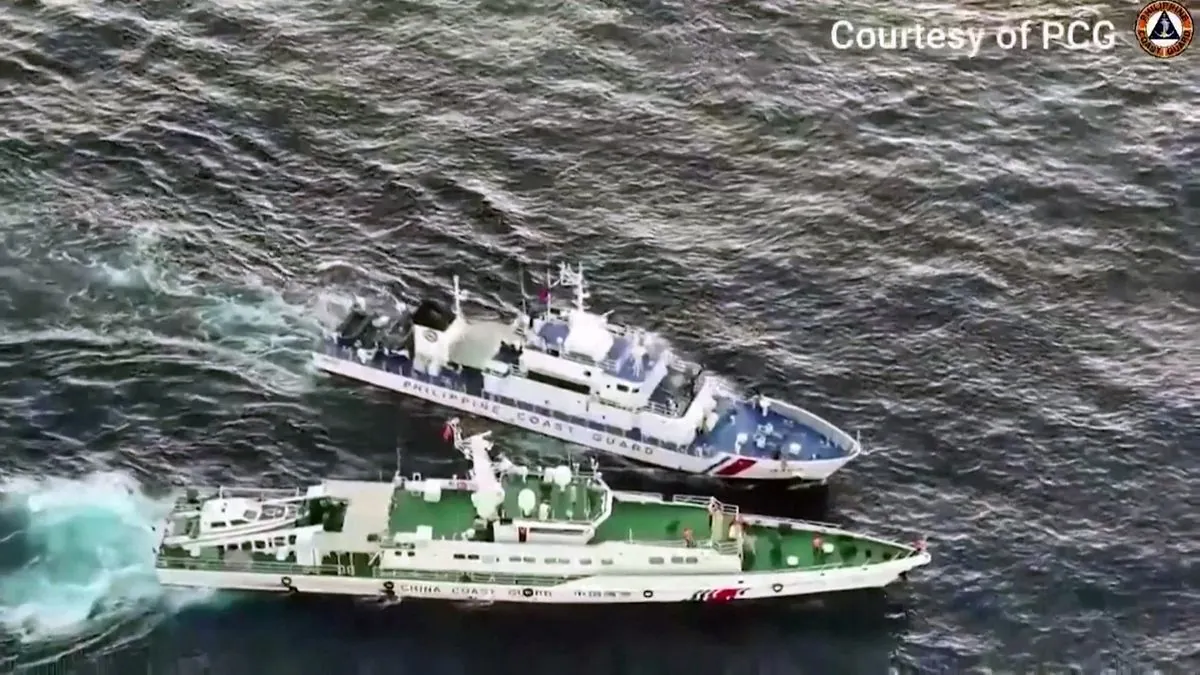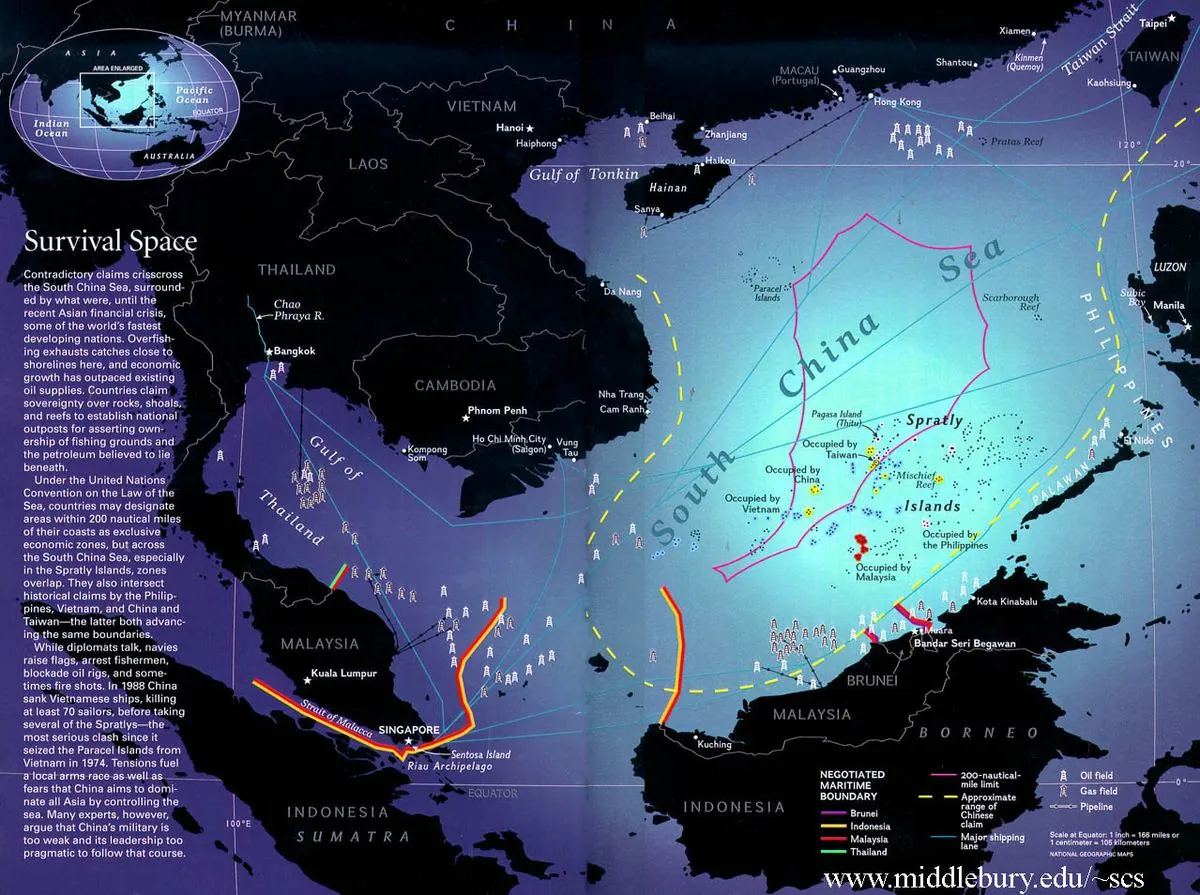China-Philippines Maritime Clash Escalates Tensions in South China Sea
A collision between Chinese and Philippine coast guard vessels in the South China Sea has heightened regional tensions. The incident occurs amid increasing maritime disputes and US considerations for escort operations.

Tensions in the South China Sea have escalated following a reported collision between Chinese and Philippine coast guard vessels on Saturday, August 31, 2024. The incident, which occurred in disputed waters, has further strained relations between the two nations and highlighted the ongoing maritime conflicts in the region.
China accused a Philippine coast guard ship of deliberately colliding with a Chinese vessel, claiming the Philippine ship maneuvered in an "unprofessional and dangerous manner." The Chinese coast guard spokesperson, Liu Dejun, stated that the collision took place just after 12:06 p.m. local time, involving the Philippine ship with hull number 9701 and the Chinese ship 5205.
This latest confrontation underscores the complex geopolitical landscape of the South China Sea, one of the world's busiest shipping lanes. The area, which China claims almost entirely through its "nine-dash line" policy, is crucial for international trade and contains significant oil and natural gas reserves. The dispute involves six main claimants, including Vietnam, Taiwan, Malaysia, and Brunei, alongside China and the Philippines.

The incident comes days after another collision near Sabina Shoal on Monday, August 26, 2024, which reportedly damaged at least two vessels. Sabina Shoal, located approximately 140 kilometers west of the Philippine province of Palawan, lies within the Philippines' internationally recognized exclusive economic zone.
In response to the escalating tensions, the head of U.S. Indo-Pacific Command, Adm. Samuel Paparo, stated on Tuesday, August 27, 2024, that the U.S. military is open to consultations about escorting Philippine ships in the disputed waters. This statement reflects the growing concern over the potential for direct confrontations between U.S. and Chinese naval forces.
The United States, bound by a 1951 Mutual Defense Treaty to ensure the Philippines' security, has been conducting Freedom of Navigation Operations (FONOPs) in the area. These operations aim to challenge what the U.S. considers excessive maritime claims by various nations, including China.
It's worth noting that in 2016, the Permanent Court of Arbitration ruled against China's claims in the South China Sea. However, China has rejected this ruling and continues to assert its historical rights over the region. The country has also built artificial islands in the disputed area, further complicating the situation.
The maritime disputes extend beyond the China-Philippines conflict. On the same day as the reported collision, Japan lodged a formal protest against China for an alleged incursion by a Chinese survey ship into its territorial waters. This incident, along with a reported entry of a Chinese military aircraft into Japan's southwestern airspace on Monday, August 26, 2024, has heightened concerns among Japanese defense officials.
As tensions continue to rise, the international community watches closely. The South China Sea, home to over 3,000 species of fish and covering an area of about 3.5 million square kilometers, remains a critical focal point for regional stability and global maritime security.
"China has no intention to violate any country's airspace."
The ongoing disputes in the South China Sea highlight the need for diplomatic solutions and adherence to international law, including the UN Convention on the Law of the Sea (UNCLOS). As nations continue to assert their claims and protect their interests, the risk of further confrontations remains high, emphasizing the importance of peaceful resolution mechanisms in this strategically vital region.


































